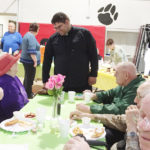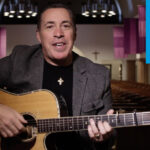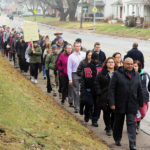By Timothy Walch
The Catholic Messenger
It was an historic day in American history. Sixty years ago, on Jan. 20, 1961, John Fitzgerald Kennedy placed his right hand on a Bible, swore to uphold and defend the Constitution, and became the first Catholic to serve as president of the United States.
That simple, civic, act shattered a long-standing prejudice against American Catholics. For more than a century, many Americans believed that Catholics were more loyal to the pope than they were to the Constitution. How could any faithful Catholic ever hold the highest office in the land?
That was the challenge faced by Alfred E. Smith, the first Catholic to win the presidential nomination of a major political party. When Smith ran on the Democratic ticket in 1928, he was greeted with open hostility and prejudice. It is no surprise that he lost in a landslide.
But a lot changed in American society between 1928 and 1960. The nation had faced a horrible economic depression, a world war, and an economic recovery during those three decades. Catholics stood shoulder to shoulder with Protestants and other Americans in rebuilding the economy and defending the nation.
By 1960, there was less concern that Catholics were disloyal to the American experiment. Throughout the election campaign, Kennedy assured voters of his firm belief in the separation of church and state. “I am not the Catholic candidate for president,” he said, “I am the Democratic Party’s candidate who also happens to be Catholic. I do not speak for my Church on public matters — and the Church does not speak for me.”
That was the message from the editors of The Catholic Messenger on Nov. 3 — five days before the election. “Our personal duty is to be informed and to vote,” they said, “not by religious affiliation, emotional allegiance, or even special interests, but on the issues and for the common good. The strength and the cause of our nation depends on doing so.”
The results on Election Day were close but clear. Kennedy had defeated Richard Nixon and ended the popular notion that a Catholic could never be elected president. What was muddled, however, was the impact of the Catholic vote.
Was it decisive? Pundits and political scientists were not sure. Kennedy had clearly benefited from additional Catholic voters, but so had Nixon. More important, Kennedy won several states with large majorities of non-Catholic voters. The appeal of his “new frontier” for America trumped apprehension about his religion.
What about a Catholic voting bloc? The editors of the Messenger scoffed at the very notion. “Talk of ‘Catholic voting strength’ creates an imaginary dragon,” admonished the Messenger. “Catholics vote — as the overwhelming majority of Americans do — for the candidate or party they regard as most able.”
The American people seemed to agree. In the thousand days of the Kennedy presidency, there was hardly a concern that religion had any impact on public policy. In the 60 years since Kennedy’s inauguration, no other Catholic who ran for president has been challenged for his religious views.
As we celebrate the inauguration of Joe Biden as the second Catholic to become president and Kamala Harris as the first woman to become vice president, we should reflect on JFK’s inauguration. It marked the beginning of an era of comity, and collegiality in American politics — something we have lost in recent years. Regardless of our individual political and religious views, let’s renew what we embraced on that cold day back in 1961.
(Timothy Walch is a lay director of St. Thomas More Parish in Coralville and a member of The Catholic Messenger Board of Directors.)











